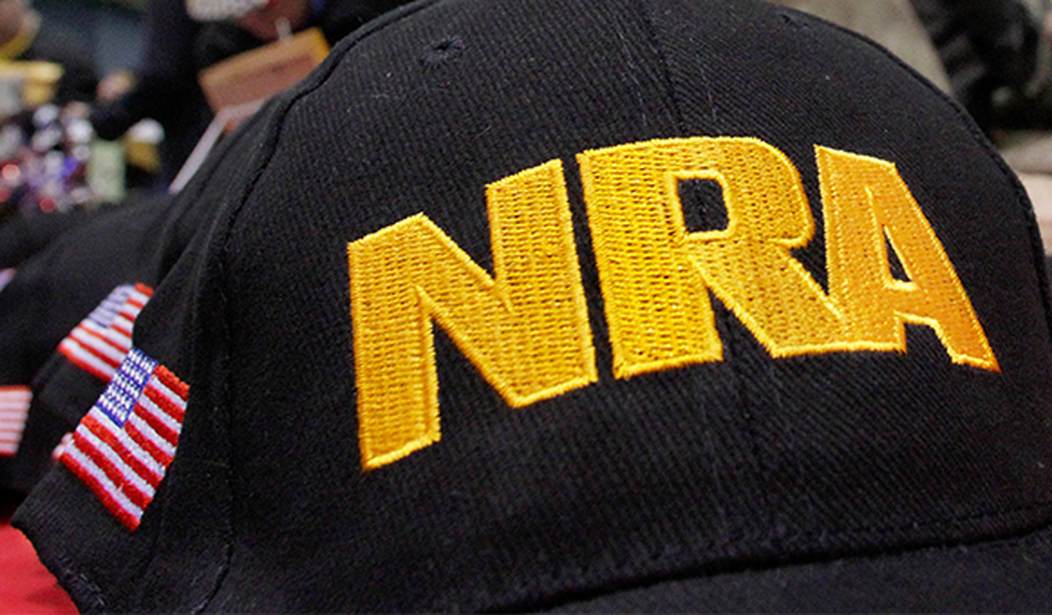Attitudes on the NRA are still mixed, even with the reform efforts we've seen in the last couple of years. I get it, though I'm personally optimistic that they're back on track or, at least, getting there.
But we can all agree that New York state trying to shut them down because of their gun rights stance was wrong.
For it to mean anything, free speech must include speech you find objectionable. If you don't have that right, you don't have a right to speak freely. If I can't say something that outrages you, that means I'm not free to say what I wish to say. I can just say things that don't outrage you.
And the NRA says things that outrage New York anti-gun jihadists. So, they tried to shut them down. They didn't even really hide what they were trying to do.
Unsurprisingly, the NRA sued, and also unsurprisingly, they won...to a point.
It's unfortunate, but the battle on that isn't actually over.
Just over a year ago, the National Rifle Association won a stunning victory at the Supreme Court in NRA v. Vullo, et al.
The question in that case was whether it violated the NRA’s First Amendment rights for a New York State regulator to intentionally and openly use her regulatory authority to threaten and coerce insurance companies into refusing to do business with the NRA—solely because of the Association’s advocacy for Second Amendment rights.
The Supreme Court unanimously concluded that it did, reversing the Second Circuit Court of Appeals and remanding the case for further consideration.
Now, the Second Circuit has ruled that the case must be dismissed because Vullo and her colleagues, as government agents, enjoy qualified immunity and therefore cannot be sued.
In the original ruling, the court dismissed the case on two grounds: (1) that the NRA failed to state a valid First Amendment claim, and (2) that the defendants had qualified immunity. The Supreme Court addressed the first point but declined to hear arguments on the second, sending the case back to the Second Circuit for reconsideration in light of its First Amendment ruling.
Now, the Second Circuit has doubled down, holding that Maria Vullo, the now former Superintendent of the New York State Department of Financial Services (DFS), and her colleagues still enjoy qualified immunity. According to the court, there was not a “clearly established” prohibition against using government power to suppress the NRA’s First Amendment rights by pressuring insurance companies and banks to cut ties with the Association.
Now, the Supreme Court made it pretty clear that yeah, the NRA's First Amendment rights were violated.
The problem here is that Maria Vullo clearly engaged in behavior that sought to violate the constitutionally protected rights of the NRA as an organization, one made up of millions of law-abiding American citizens who also have a right to free speech. She targeted them not for any obvious wrongdoing, but because they stand for something she disagrees.
While qualified immunity arguably has its place in society, the fact that I've seen it used way too many times to protect public officials who engage in obviously wrong behavior is enraging. She knew what she was doing and shouldn't get any protection for that.
The National Rifle Association has a reputation for being the gun rights organization that's most likely to compromise with lawmakers, and she vilified them, targeted them for official action, and tried to silence them as an organization. She, Andrew Cuomo, and Letitia James should all be held personally liable for their actions while in office, particularly the motivations that led to them targeting the NRA in the first place.
At no point in time was this right.
But I put at least some of the blame on SCOTUS here. They could have addressed this and didn't. They had to know what the Second Circuit was going to do, and yet they addressed the free speech aspect and kicked it back to them. They had to know they'd continue to uphold qualified immunity.
Now, though, they get a chance to correct their wrongs. This will come back to them, and they can gut qualified immunity's use as a shield for blatantly wrongful behavior for public officials.
The question is, will they?








